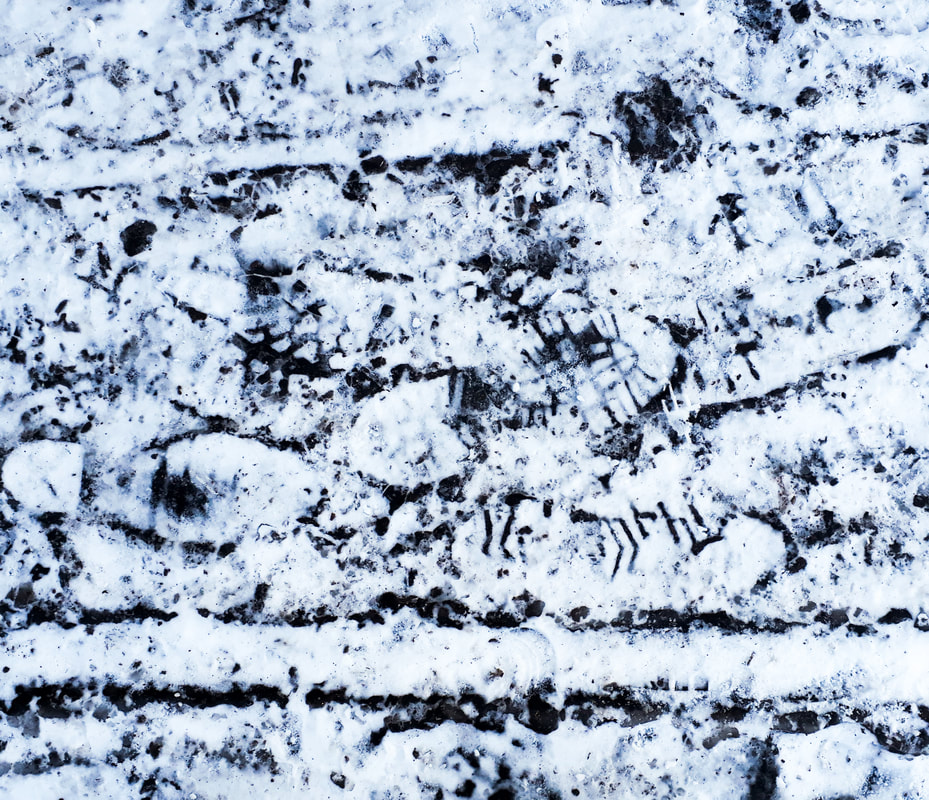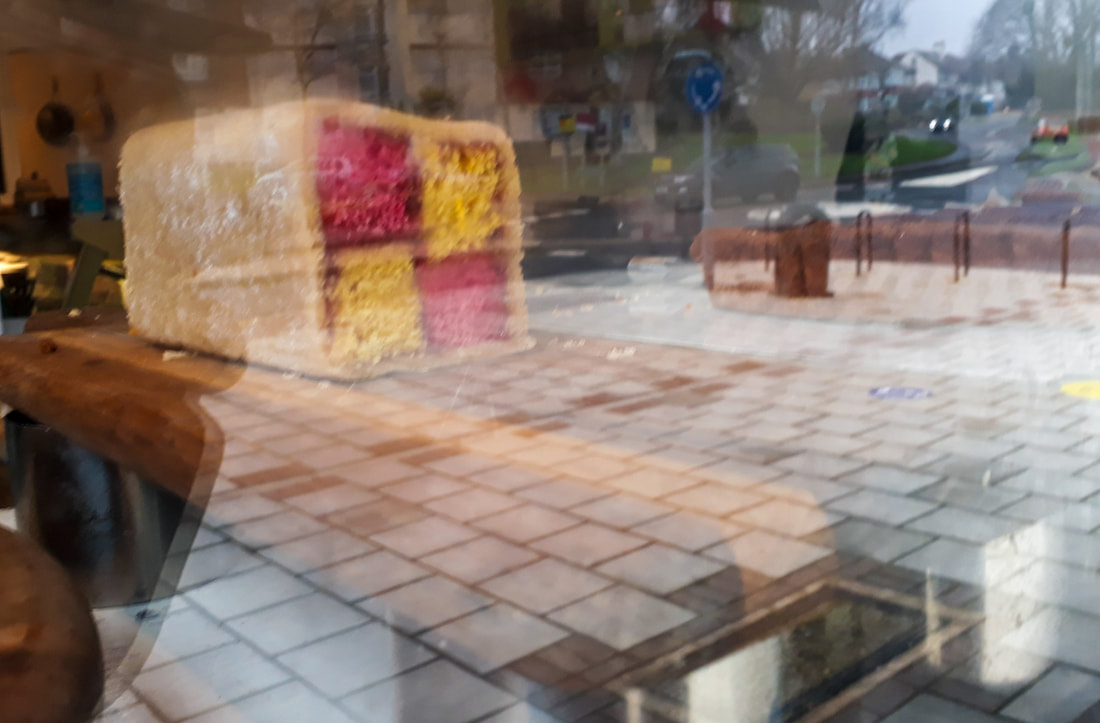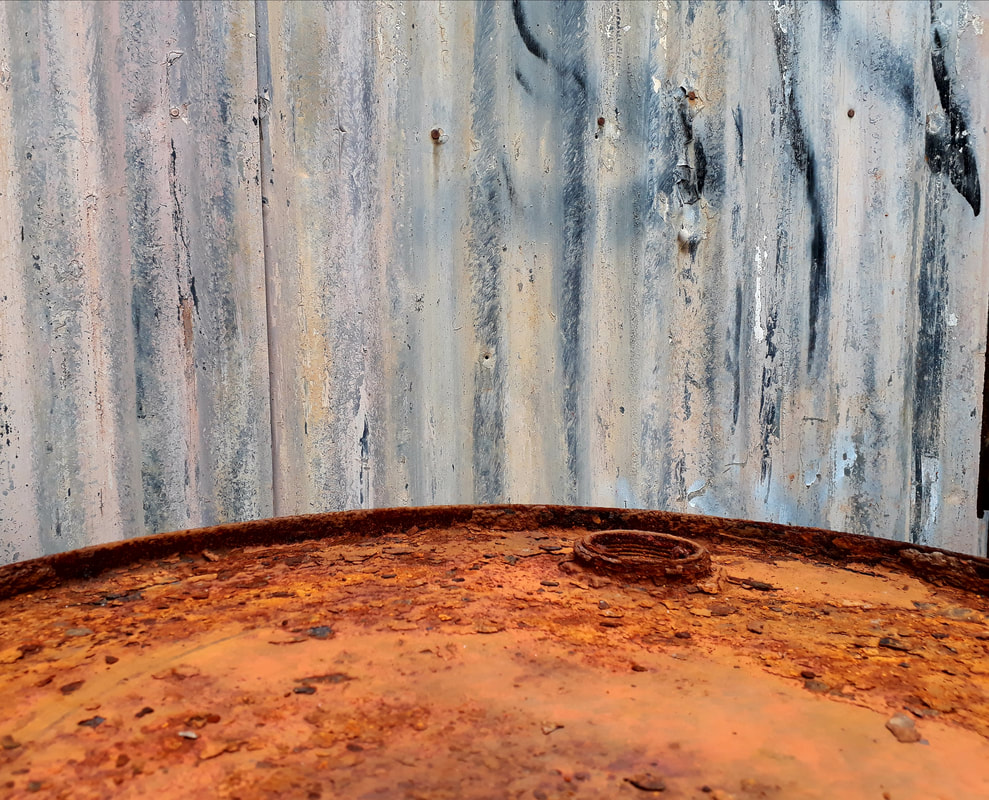Primordial Chaos appears to have few human characteristics. It contains every possible definition, including its own negation. It is not like us. It is unknowable. This order of predication can be reversed. We are not like it. But this changes over the centuries so the we become more like the Logos - the first supreme rational good thought. We are made in the image of Logos, whose supreme intention is a Good and loving one. (A strong counter-argument is that we make the Logos in our image. It is a human creation.) According to Plato we can have knowledge of this supreme Good through philosophy.
(Again, I must stress these are my interpretations as I sketch out the next installment in Solon's journey. They serve the purposes of the story.)
The primordial powers of Erebus and Tartarus, the dark shadowy agencies, are more difficult to grasp for me. But one way of understanding them is to consider them in contrast to Plato's Logos - a concept that seems to anticipate The Christian idea of Jesus as 'the word'. This post-primordial idea of a supreme Good is devoid of a shadowy dimension. Indeed the shadowy dimension is the here-and-now of human perception and experience. (Christians, quite rightly, could point to the human aspect of Jesus.) The here-and-now awaits the redemption of the supreme good to 'save' it from itself. This seems to me to be less satisfactory than the primordial first intention which includes Erebus.
The primary opposition in Plato is between the supreme light of Reason/Logos and its shadows on earth. The here-and-now is a pale imitation of the perfection of Logos. I don't believe Solon is drawn to the Platonic schema. Neither are the priest-doctors at the Askepion. They see a harmony in the primordial powers. They probably reject the terms 'light' and 'dark'. It's possible that the cures they offer involves a rejection of these terms.
I'm sure it would be naive to think the early believers in primordial powers didn't see an opposition between light and dark. But what if they saw not oppositions but contraries or even complimentaries? For example, there is water and dry earth. We can consider them to be opposites by virtue of what they are in themselves. Mix them together and you have something more powerful than the constituent parts. Let us consider this to be a key paradigm in primordial thinking. The mixing of complimentary powers produces something greater. To oversimplify: in Plato's schema there are clear heros and baddies. There is the light of knowledge and the darkness of false knowledge, i.e. our perceptions of the here-and-now. Plato seems to separate-off the Light as the true reality. Could the Light and the here-and-now not compliment each other? They might be necessary for each other? By reaching out the Light becomes something greater.
I realise that I am being unfair on Plato. He is an immensely subtle thinker. He is also a great humanist. He captures a rich variety of personalities, human character and experiences; so much so, the human often seems more important than the One /Logos. Nevertheless his schema was taken up over many centuries and placed the here-and-now as a pale shadow of the One. It means that those who can claim knowledge of the One/The Truth can also claim political power over others. They own the narrative. This is a major downside.
Arguably by being truly human, we compliment the One, rather than 'sinning' against it. And rather than attempting to be like the One, we should try to find what is natural to us, embracing our corporeality and desires. Therefore we have to find a definition of what's truly human. But this is well nigh impossible. But let's have a go in the context of the primordial powers and not Plato's schema.
Let's assume Plato's schema produces alienation and anxiety rather than harmony. What if Erebus sits within us? It is our 'weaknesses'. But it is not an absence or a negation. It is part of our very definition. It has a 'heaviness'. But Erebus sets a challenge. It has agency because we can look kindly on its manifestations, both in ourselves and nature. We are moved when we see someone strive to better themselves; a child taking their first step. Without Erebus, this could never happen, because the starting point is always 'less than'. It is the empty-space that allows us move from one state to another. Erebus is always close to failure. When someone we love fails to achieve a goal we are moved by their endeavours and it makes us love them all the more. In turn, they may feel more loved, despite bitter disappointment. Hopefully, they will feel encouraged to try again.
But Erebus is a tragic stage because it is the setting for human thought and action. It is associated with darkness, but there is no true opposition of light. It is easy to see why Erebus is associated with the underworld. It is shadows (rather than darkness). There is no redemptive force to counter this.
Plato gives us a counterforce. By calling it the Good, Plato gives 'Chaos' qualities and makes it an object of thought. But this contradicts the idea that the true First Thought cannot be an object of thought. Possibly the flaw is that by calling it the Good, then any other attributes must be less than good. The 'Good' cannot be uttered without concurrently implying the opposite. Oppositions are created (Light/Dark, Perfection/Imperfection) but these are fallacies. Value judgements are introduced. Earthly manifestations of the Good are imperfect.
In fairness, the Platonists deny the One/Good is an object. It is impossible for us not to ask 'what is it?' and not try to come up with an answer. The natural gravity of thought is to give it a name. It could also be argued that Aehros and Erebus are attempts to give Chaos qualities for the same reason as the Platonists call it the Good. We want to have knowledge of it, we want to acknowledge it, so it must be given qualities that we can understand and measure against the reality of experience. Maybe these value judgements arise because Plato wishes to have knowledge of the One, and the road to knowledge implies making value judgements.
For the sake of argument, I'm going to say Plato is wrong to re-name Chaos as the Good. There can be no doubt that the world needs a moral compass and it needs redemption from the toil. But the seeds of this redemption are in the desire to care, nurture and love. This is Aehros, not Plato's re-naming of Chaos. At least, we will find redemption in Aehros, not the Good, which is accessable only to those who study philosophy. Aehros is accessable to all, but the Good is only accessable to those who are educated and, let's face it, education costs money. The Good imples a kind of elitism. Aehros is within us, so redemption is within us, if we are true to Aehros. But it also means the tragic setting, Erebus, where the human story is played out, can never be transformed. There is no second coming. But there is kindness and care, which is transformative.
Of equal importance is the realisation that love doesn't guanateee success. in fact, 'success' my not be the true measure of things. Recall the example of the child taking its first steps and the different elements of this moment. There is the loving gaze of the parent, the striving of the child to walk and the child's failure. These three elements make a 'whole'. The child's lack of success is only a part of this whole.
Pergamon is in the grip of a cult of luxury. 'Wealth makes us happy.' Luxury goods bring us contentment and happiness. The cult places the Good here on Earth. Our human weaknesses - failed ambitions, sickness etc. - will be banished. Failure and sickness are looked down upon. They induce disgust. The unity of Aehros and Erebus is broken. The narrow definition of success becomes the measure of success. The result is that most people feel inadequate. The cult creates many social problems, including addiction to a narcotic called kalodaimon, from 'kalo' (good) and 'daimon' (spirit). The Asklepion, the healing centre, tries to cure people of their addiction.
The 'cure' is not to embrace failure and sickness, to fetishise it, but to look at the human condition with sympathy and kindness. So how does the Asklepion define what the human condition is? They formulate an explanatory myth.
Here is a first sketch of the myth:
Out of Chaos comes Aphrodite (Aehros) and Erebus. Erebus is both male and female. Aphrodite is pure spirit, neither male nor female. Erebus produces children and begins to toil the land to feed them, but their hardwork fails. Aphrodite is moved by this - including the failure of nature to produce crops. (The 'entirety' moves her.) Aphrodite longs to embrace Erebus but cannot because she is pure spirit. Her desire causes her to develop a bodily form so that she can embrace Erebus and suckle the children while Erebus continues their eternal toiling of the land. The goal of life, the 'cure', is to cultivate the same love Aphrodite felt for Erebus.
There is a visual representation of this myth at the Asklepion with the aphorism 'Look kindly on the toils'. It will be a sculpture or effigy of some sort. It is not a representation or effigy to be worshipped but the viewer should be moved by it. It offers a path to self-worth. Of course, there is a very real danger that this will develop into a cult of its own. This will be an interesting area to explore.







 RSS Feed
RSS Feed